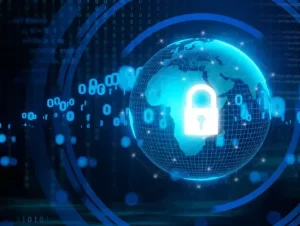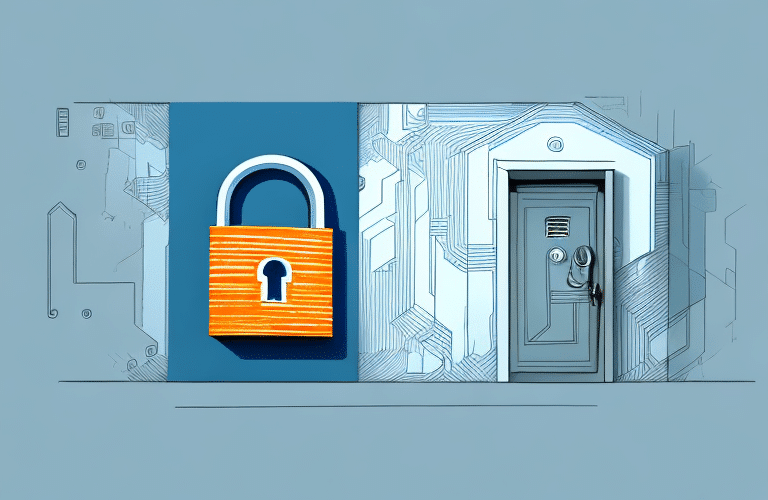Introduction
In an era marked by digital transformation, the real estate industry faces a looming challenge: cyber threats. As property transactions, sensitive data, and client information increasingly shift to digital platforms, the importance of cybersecurity has never been more significant. This article delves into the pivotal role of cybersecurity in the real estate sector, explores key trends, identifies unique vulnerabilities, and provides insights through a comparative table featuring tailored cybersecurity solutions for the industry.
The Expanding Importance of Cybersecurity
The real estate industry’s journey into the digital landscape has been transformative. While digitalization brings numerous advantages, it also ushers in potential vulnerabilities. The security of property transactions, sensitive data, and client information is now a matter of paramount concern.
Key Cybersecurity Trends in Real Estate
- Data Encryption: With an increasing volume of sensitive data being managed electronically, data encryption is indispensable. This technology safeguards against unauthorized access during data storage and transmission, ensuring the confidentiality of critical documents, agreements, and financial information.
- Multi-Factor Authentication (MFA): MFA is a key cybersecurity practice that adds an extra layer of protection. It requires users to provide multiple forms of identification before granting access. In the real estate context, MFA ensures that only authorized individuals can access critical systems, mitigating the risk of unauthorized data breaches.
- Security Awareness Training: Ongoing employee training is vital in the realm of cybersecurity. These programs educate staff on how to recognize and mitigate cybersecurity risks, including phishing attempts, social engineering attacks, and other threats. Educated employees play a pivotal role as the first line of defense.
- Cloud Security: The real estate sector is increasingly relying on cloud-based systems for data storage and collaboration. Ensuring the security of these cloud platforms is of utmost importance. Robust cloud security measures protect data stored in the cloud, guaranteeing the confidentiality of property information.
- IoT Security: Smart buildings and homes, equipped with Internet of Things (IoT) devices, have become common in the real estate landscape. These devices enhance convenience and efficiency while introducing new cybersecurity risks. IoT security encompasses device monitoring, threat detection, and secure access control to prevent unauthorized access and breaches.

Image by: https://cybermagazine.com/
Comparative Table of Real Estate Cybersecurity Solutions
The real estate industry offers a range of cybersecurity solutions tailored to its unique requirements. The following comparative table showcases key solutions:
| Cybersecurity Solution | Description | Key Features |
|---|---|---|
| SecureDoc RealEstate Suite | Comprehensive real estate cybersecurity | Data encryption, MFA, employee training |
| PropertyGuard Pro | Property transaction security | Secure document sharing, transaction tracking, data protection |
| RealtyCyber Shield | Cloud security for real estate | Encrypted cloud storage, secure collaboration tools, compliance |
| SmartBuildings Secure | IoT security for smart buildings | Device monitoring, threat detection, secure access control |
| RealGuard DataShield | Data security for real estate firms | Secure data storage, real-time threat monitoring, incident response |
These solutions cater to a variety of needs, from data encryption and MFA to secure document sharing and IoT device monitoring, addressing the diverse cybersecurity challenges faced by the real estate sector.
The Unique Vulnerabilities of Real Estate
Real estate, with its significant financial transactions, vast databases, and the trust that underpins its operations, possesses unique vulnerabilities. Cybercriminals exploit these vulnerabilities, targeting fraudulent property transactions, identity theft, and unauthorized access to property-related systems and information.
The Future of Cybersecurity in Real Estate
The real estate industry’s commitment to cybersecurity is essential to preserve the trust and integrity of its operations. As technology continues to evolve, so do cyber threats. Remaining vigilant, investing in advanced cybersecurity solutions, and prioritizing employee training are essential to stay ahead of potential risks and safeguard the sector’s digital infrastructure.
Conclusion
Cybersecurity in the real estate sector is not an option but a necessity in today’s digital landscape. Protecting sensitive property data, client information, and transaction integrity is not just a safeguard; it is an imperative. By embracing key cybersecurity trends and leveraging tailored solutions, the industry can bolster its digital defenses, ensuring a secure and resilient future for all stakeholders. In the ever-evolving digital realm, vigilance, investment in cybersecurity measures, and a commitment to education form the foundation of real estate’s digital security.












